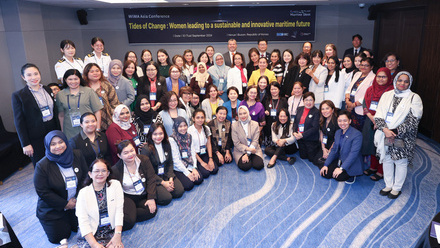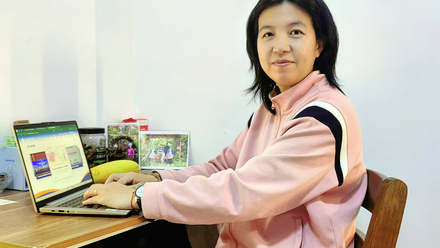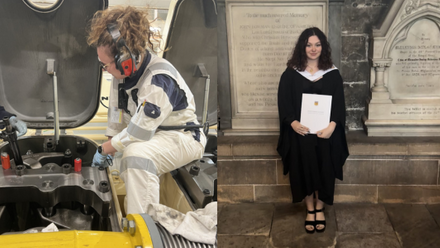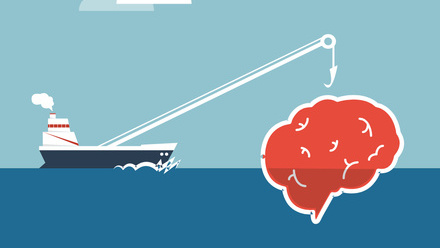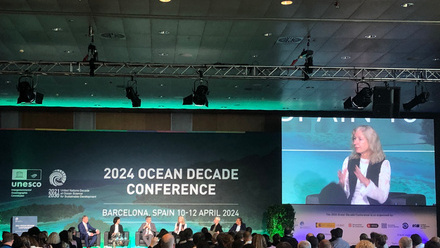IMarEST supports British Science Week and International Women's Day
Today sees the start of the British Science Association’s ‘British Science Week’ (8 - 17 March), a 10-day period of exciting and interactive activities aimed at engaging people UK-wide in Science, Technology, Engineering and Mathematics (STEM). What’s more, today is also International Women’s Day, an annual celebration of women which encourages year-round gender equality. To get us kick-started with the week’s activities we’re going to take a look at how women’s involvement in STEM has evolved in recent years and some of the most notable women in marine science.
International Women’s Day
International Women’s Day is the annual celebration of women and aims to spread the message of gender equality year-round. This year’s theme is ‘Balance for Better’, as we strive for a gender-balanced world throughout all parts of society.
STEM is a key area with a gender imbalance, with less than 30% of the global workforce being women. However, there is a growing interest in diversifying STEM communities and the increase in women entering STEM sectors is extremely promising, with more women pursuing these careers in the last 40 years than in any other field.
Throughout history, female inclusion has been vital to marine science, with scientists and researchers such as Rachel Carson (ecologist and nature writer), Eugenie Clark (ichthyologist, ‘The Shark Lady’) and Sylvia Earle (marine biologist and explorer) being just a few that have significantly contributed to the development of the field.
Our first activity for British Science Week, and to showcase the fantastic work of women in STEM, was today’s live-streamed lecture on IMarEST TV, given by Lowri Mai Griffiths, Head of the Maritime Policy Unit at the Foreign and Commonwealth Unit. The lecture explored the long-term management of the high seas looking in particular at biodiversity resources in areas beyond national jurisdiction and deep sea mining. You can watch the lecture for free on our YouTube channel.
Over the coming week, we will be showcasing the IMarEST’s other female marine role models, across the fields of plastic pollution research, ecology, engineering and more. If you would like to read further about our role models you can find case studies here on the IMarEST website and discover more about women in global marine science on the United Nations Educational, Scientific and Cultural Organization (UNESCO) website.
What is British Science Week?
British Science week is designed to promote the inclusion of people of all ages and backgrounds in STEM learning. Whether you are a teacher, parent, student, or simply interested in STEM, there is a wide choice of activities taking place, and help is close by for organising events.
Run with the ancestors
This activity can be done as a group or in PE lessons, and is accessible to runners of all abilities. ‘Run With Ancestors’ is a smartphone app taking you on a trip through time, as you learn about Britain’s history whilst you run, right back to times before even humans existed.
Organise an event
Alternatively, you can organise your own event with the help of the British Science Association. Guides and advice on setting up and funding activities, and even information on getting science speakers to present at your event, can be found here.
Citizen scientist – Operation Weather Rescue
Citizen science involves including members of the public in scientific projects. These are often fulfilling experiences for attendees and you can gain a huge number of useful skills. This year’s citizen science project for British Science Week is being run in association with Operation Weather Rescue, a team of researchers helping us in predicting the future of global climate change.
By taking part in this project, you will be helping to digitize historic weather data which will be used to aid scientists in monitoring and adapting to climate change. Doing so could even inspire others around the world to do the same and get involved with STEM.
Activity packs
Activity packs for British Science Week can also be found online. These are aimed at children of all ages, from early years, through primary school to secondary education. For parents and teachers, this is a great way for you to engage your children and students in STEM subjects, including the ocean’s plastic pollution crisis, which you can find out more about in the IMarEST’s week of Emerging Marine Trends. If this interests you, you can read further in our marine plastics Roundtable Discussion, considering the implications of shipping on ocean plastic pollution.

